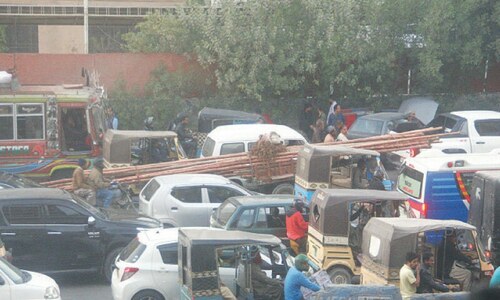KARACHI: Three more patients have lost their lives to dengue fever in as many days, raising the death toll from the mosquito-borne illness in the province to 42 since May this year.
According to health department officials, the three victims, all men, hailed from Sanghar, Dadu and Korangi.
Two of them died at the Aga Khan University Hospital while the third patient died at Ziauddin Hospital, Clifton campus.
Official statistics show that Karachi has reported 1,429 cases of dengue fever in October. Of them, 314 new cases were reported on Wednesday.
Hyderabad division reported 49 cases, Mirpurkhas 14, Larkana one, Sukkur four and Shaheed Benazirabad division reported three cases.
Doctors advise oral rehydration and balanced diet to manage condition
Of the total 11,947 dengue fever cases reported this year in the province, 83 per cent cases (9,909) are reported in Karachi.
Thirty-three per cent of these cases were reported in Karachi East, followed by Central, Korangi, South, West, Malir and Keamari.
The highest number of mortalities (17) is reported in Central and East (10).
Sources said the city remained in the grip of dengue fever as a significant number of patients with serious illness continued to report at tertiary care hospitals.
Speaking to Dawn, doctors at the Sindh Infectious Disease Hospital and Research Centre (SIDHRC) at Nipa, said the dengue fever admissions at the facility had jumped from 150 in August to 300 in September.
“There has been no improvement in October. Right now, we have 69 patients being treated for dengue fever,” said Dr Abdul Wahid Rajput, Medical Superintendent of the SIDHRC.
The hospital had seen the death of a five-year-old girl two days back.
The dengue patient brought to the facility in a critical condition from a private hospital died within a few hours of admission.
According to experts, there is no vaccine or specific treatment available for dengue fever and the only prevention is to eliminate mosquitoes.
The disease symptoms begin three to four days after infection and may include high fever, headache, vomiting and pain in muscles, joints, eyes and bones. It can also be associated with skin rashes. In the worst condition, there could be bleeding from gums, nose, mouth, ears and other parts of the body.
Patients are advised to have an examination from qualified doctors as soon as they notice signs and symptoms and follow the guidelines. Most dengue fever patients, experts say, recover without any complications.
“The disease gets serious when people stop eating and drinking as they feel lethargic and nauseous. In other cases, patients don’t take the illness seriously, opt for self-medication and seek medical intervention only when things go out of control,” Dr Rajput explained, adding that oral rehydration and balanced diet were the key to manage the disease.
Published in Dawn, October 7th, 2022















































Dear visitor, the comments section is undergoing an overhaul and will return soon.